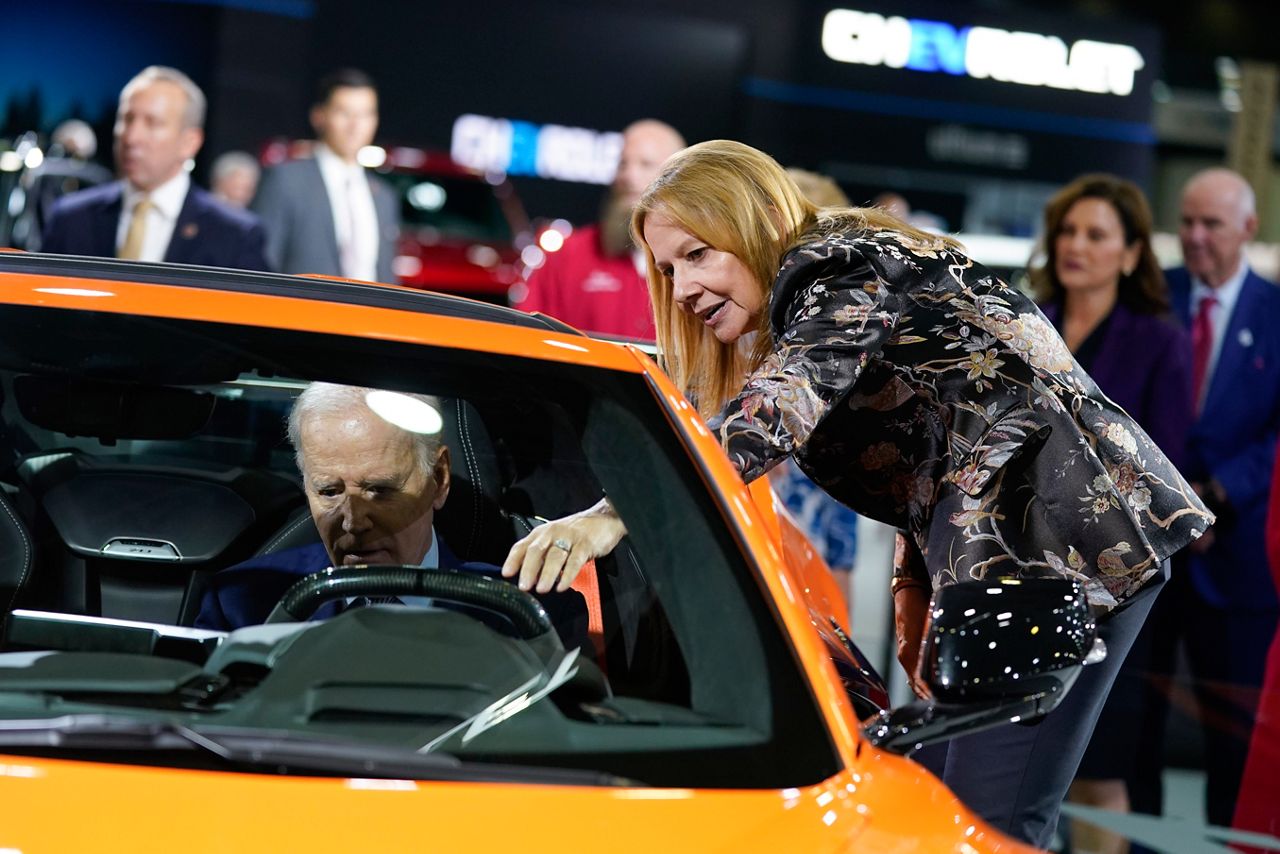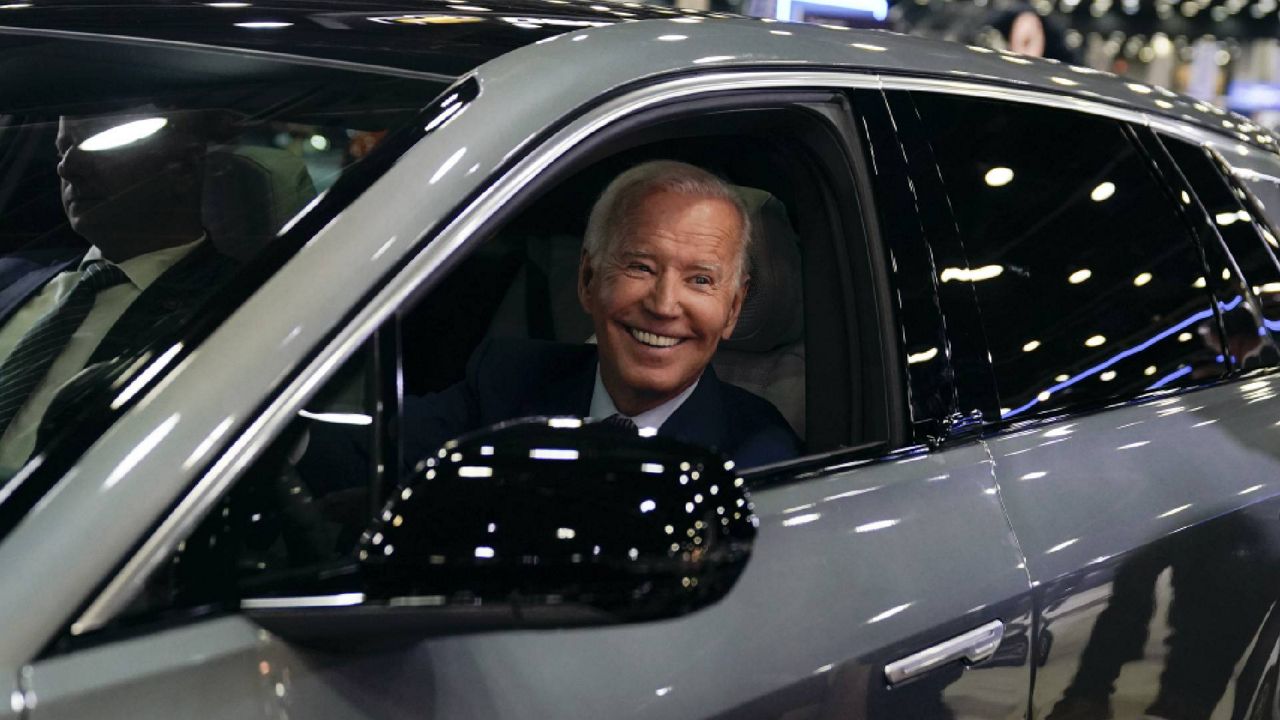After slowly driving an electric Cadillac Lyriq down a blue carpet at Detroit’s auto show on Wednesday, President Joe Biden said the advancements on electric vehicles give him a “sense of optimism.”
“Although I like the speed, too,” he joked.
Biden visited the auto show particularly to get a firsthand look at the newest electric models — from a Jeep Grand Cherokee to a Ford E-transit utility van to an electric Chevrolet Silverado.
He also got in the driver’s seat of a brand new, bright orange Corvette Z06 — his favorite car.
“It's a beautiful car, but I love the Corvette," he said after driving the Lyriq with a U.S. Secret Service agent in the passenger seat.

So far in 2022, car manufacturers have announced $13 billion in investment in EV manufacturing and $24 billion in batteries, the White House said, and most companies are moving toward electric products. Last year, major automakers committed to a goal of making 40% to 50% of their sales electric by 2030, including hybrids, getting them closer to an objective reaffirmed by President Biden.
Biden also marked his trip to Michigan with an announcement that could make owning an electric vehicle more convenient: the first $900 million from the bipartisan infrastructure law for EV chargers along 53,000 miles of the national highway system, stretching over 35 states.
The law devotes a total $7.5 billion to a nationwide network of 500,000 EV chargers, in order to make charging more “predictable, reliable and accessible,” the White House said.
“The great American road trip is going to be fully electrified,” Biden said Wednesday. “Charging stations will be up and easy to find as gas stations are now.”
A recent poll from Morning Consult found that Americans who aren’t interested in purchasing an electric vehicle mostly cite cost as a deterring factor, though lack of charging infrastructure is another big reason.
Democrats’ sweeping climate and health care bill that became law last month also includes subsidies for both new and used electric vehicle purchases. Americans can get up to $7,500 in credit for a new car or $4,000 for a used one, depending on the car price and their income.
However, many EVs won’t qualify because of stipulations in the bill that require the car and its main components to be manufactured in the United States.
“While we're here in Detroit, building in America, we're making it easier for folks at home to buy it here in America,” Biden said Wednesday.
Republicans have called the electric vehicle subsidies out of touch, using lower-income taxpayer dollars to fund car purchases for those who can afford the newer models.
The same Morning Consult poll found that very few consumers are on board with EVs: just one in five say they’re interested in purchasing one in the next five years.
But the president framed his administration’s work as a way to prepare the country for years in the future, both when it comes to protecting the climate and boosting domestic production of cars.
He also signed into law the bipartisan CHIPS act this summer, which boosts domestic production of semiconductor chips critical for automobiles.
Biden estimated his administration is investing a total of $135 billion “to advance America's electric vehicle future” between all the legislation passed this year.
“I believe we can own the future of the automobile market. I believe we can own the future of manufacturing,” he said. “American manufacturing is back, Detroit is back, America's back.”



